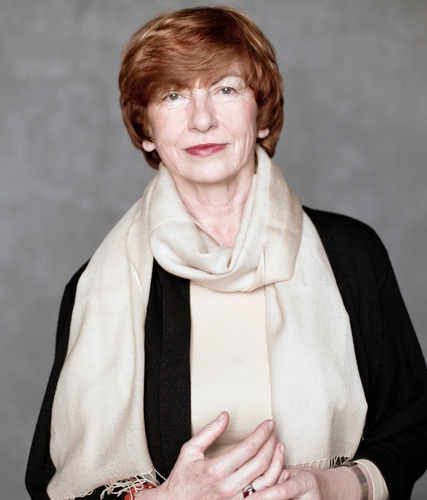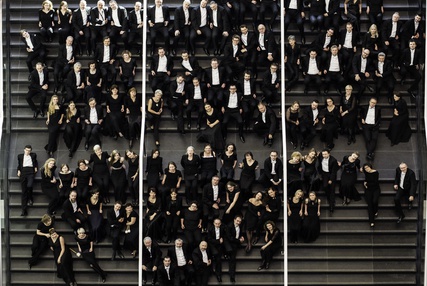Sonosphère III et IV

Pour orchestre symphonique et électronique
Briser la forme du concert ! Voilà le but déclaré d’Elzbieta Sikora dans ses Sonosphères III et IV : gommer le cérémonial qui entoure le début d’une performance musicale classique, s’affranchir de l’étiquette des saluts, se débarrasser de tout le poids du décorum que l’histoire de la musique charrie, sans plus savoir pourquoi.
Sonosphère – littéralement, une sphère de sons. Le dictionnaire nous apprend que le terme est né en 1974, et désignait à l’époque « un haut-parleur de forme sphérique à embase magnétique permettant une orientation ». Pour Elzbieta Sikora, le terme se pare non seulement de poétique, mais d’une véritable aspiration compositionnelle : celle d’habiter et d’habiller un espace acoustique dans son entièreté pour mieux le magnifier. Les troisième et quatrième volets du cycle doivent être joués successivement. Sonosphères III envahit non seulement la salle de concert, mais tout le bâtiment qui la contient : la musique résonne déjà dans le foyer, grâce à des cuivres disposés aux balcons. La rumeur du public devient ainsi partie prenante du discours musical, jusque les spectateurs pénètrent dans la salle elle-même, où l’orchestre joue pour les accueillir. Sonosphères IV prend alors le relais, restreint à la salle de concert, mais – avec notamment des cuivres et des percussions disséminés en stéréo multiple dans les gradins – toujours travaillant l’espace entre les sons de l’orchestre, l’espace entre les sons et le public – la sonosphère, toujours en mouvement.
Les enjeux technologiques
Outre la spatialisation et le tracé des trajectoires des sons dans l’espace, l’électronique live contribue ici à faire naître une forme d’ambiguïté dans les perceptions, notamment par la variété des timbres confectionnés. Une manière de mettre en lumière les replis secrets d’une simple tenue de violon, d’un accord de piano ou d’un trille de flûte…
Expérience passée à l'Ircam
La tête d’Orphée II pour flûte et électronique (1982)
Biographie
Elzbieta Sikora
Compositrice (née en 1943)
Compositrice d’origine polonaise, Elzbieta Sikora vit à Paris depuis 1981. Elle étudie la composition à Varsovie, avec Tadeus Baird et Zbigniew Rudzinski, et à Paris, la musique él…




